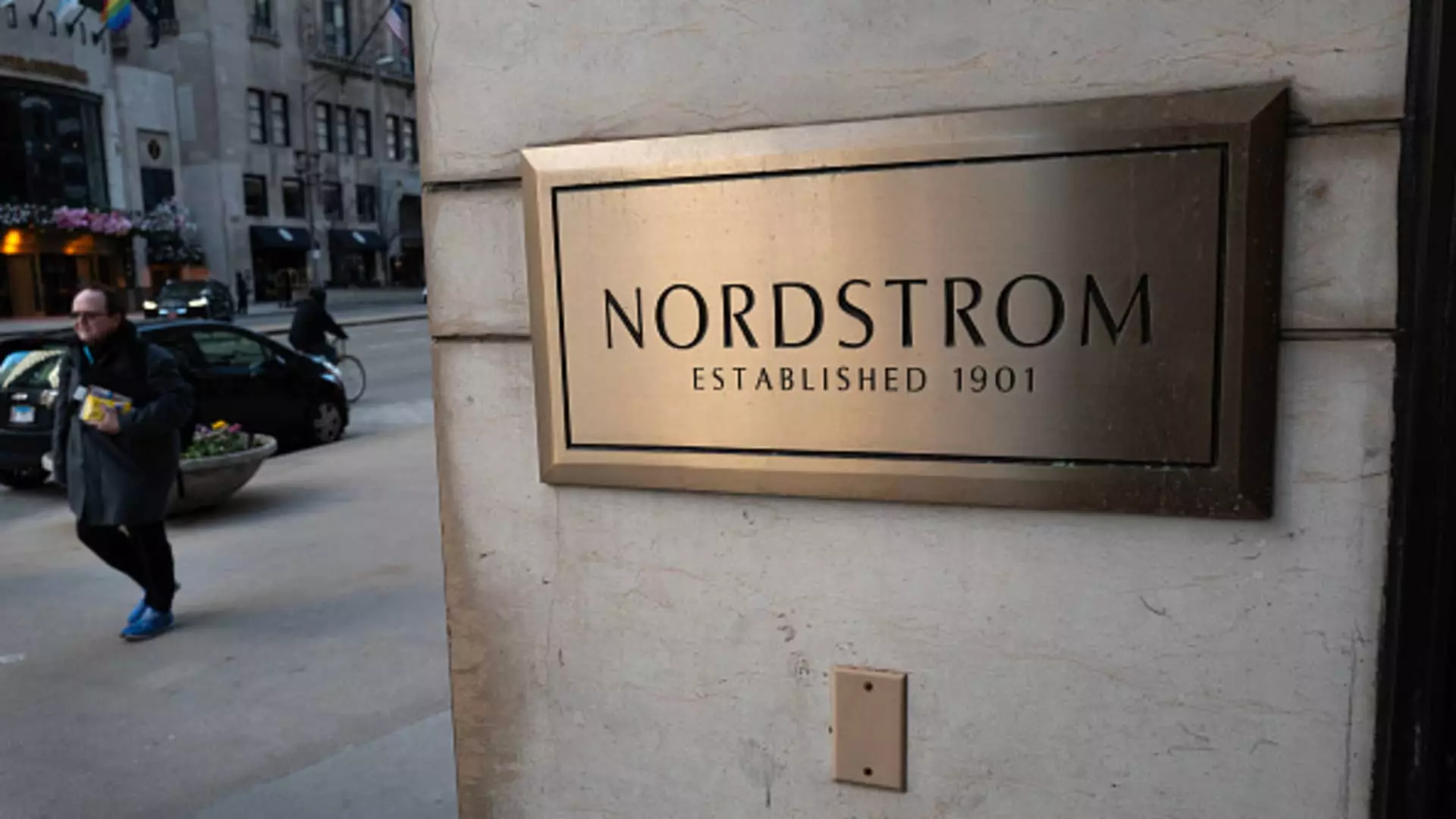In a significant shift within the retail landscape, Nordstrom has announced its decision to transition from a publicly traded company to a private entity. This move follows the agreement to a buyout deal valued at approximately $6.25 billion, predominantly spearheaded by Nordstrom’s founding family in partnership with El Puerto de Liverpool, a prominent Mexican department store chain. The transaction has received unanimous approval from the company’s board of directors and is projected to finalize by mid-2025. Under this new arrangement, the Nordstrom family will retain a controlling interest with 50.1%, compared to Liverpool’s 49.9%. Shareholders can expect to receive $24.25 in cash for each share they currently hold, which highlights the financial implications of this switch in corporate structure.
The rationale behind this buyout goes beyond mere financial calculations; it reflects a wider trend in retail where companies seek greater agility and focus without the pressures of public scrutiny. Erik Nordstrom, the CEO, emphasized this shift as an opportunity for the company to build upon a legacy of customer-centric values. However, this is not the first time Nordstrom has pursued a private ownership model; a prior attempt in 2018 fell short, suggesting that the current drive is part of a longer strategy to enhance company performance and make operational decisions more efficiently.
With the retail sector facing a myriad of challenges, including consumer purchasing shifts and increased competition, this evolution could provide Nordstrom with the breathing room it needs. Amid a climate where luxury retailers are feeling the pinch, the entry of a solid strategic partner like El Puerto de Liverpool may offer new avenues for growth and innovation, particularly in engaging customers’ demands for both value and experience.
While Nordstrom’s revenue saw a modest growth of about 4% year-over-year in its most recent fiscal report, optimism about the upcoming holiday season remains tempered. The retailer’s reluctance to project strong sales forecasts amidst reports of fluctuating consumer behaviors indicates an acknowledgment of the broader economic pressures affecting discretionary spending. The recent instability in stock prices post-announcement, alongside the company’s previous struggle to sustain strong public market performance, suggests uncertainty about long-term growth strategies.
As luxury retailers grapple with consumers who prioritize essential purchases over non-essentials, it is possible this buyout will allow Nordstrom to refocus its marketing and sales efforts, potentially leveraging Liverpool’s established infrastructure and market knowledge in Mexico.
Looking ahead, the partnership with El Puerto de Liverpool may yield opportunities for diversification beyond traditional retail models, particularly as both firms navigate the evolving demands of consumers across different markets. Yet, this transition to private ownership entails risks, including the possibility of reduced transparency and accountability. For stakeholders, the challenge will be to maintain customer engagement while carefully managing the operational costs associated with a luxury retail experience.
Nordstrom’s foray into private ownership underlines the ongoing complexities in the retail sector. While the potential for strategic revitalization exists, success will depend on how effectively the company balances legacy with innovation, ensuring that it remains not just a survivor among luxury retailers, but a leader. As Nordstrom embarks on this new chapter, the lessons learned from its past, alongside careful navigation of present challenges, will be critical to its future success.

